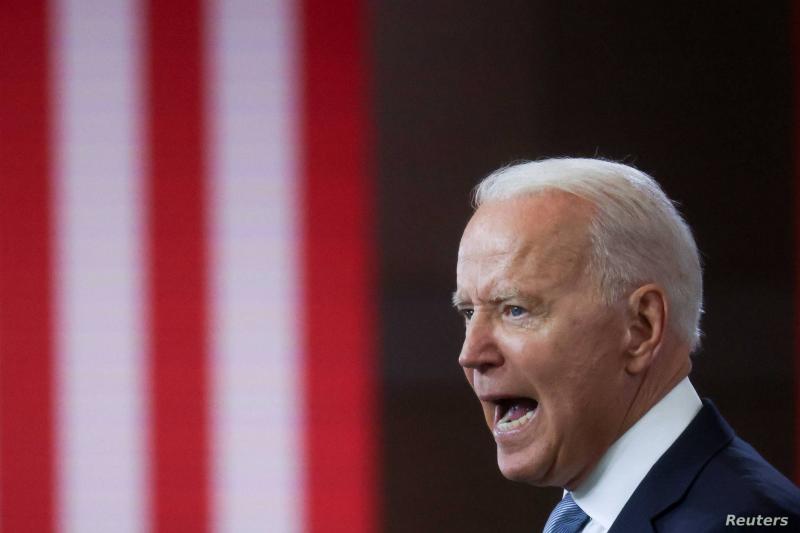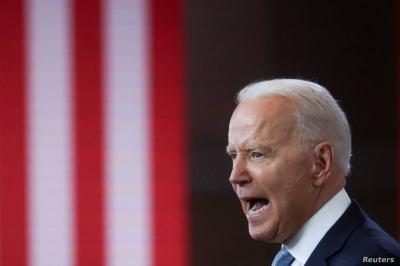On Tuesday evening, U.S. President Joe Biden praised the progress made by Congress toward the approval of his two massive investment proposals in infrastructure and social spending, totaling nearly $5 trillion. This stance from the Democratic president came after his allies in Congress resolved several disagreements that had separated them regarding these substantial projects, which are still not expected to be finalized for a vote before the fall.
Until the time of voting on these significant investment plans, negotiations among Democratic members of Congress are expected to be challenging, as positions still diverge between the party's left-wing and centrist members. Given that Democrats hold a very slim majority in Congress, they will need to reach as much consensus as possible among themselves if they wish to pass these plans, which are expected to significantly shape Biden's presidency.
Biden stated in a televised address from the White House, "The House took a big step today towards historic investments that will change America." He added, in a speech primarily focused on the withdrawal from Afghanistan, that "these investments will reduce family expenses, not just slightly relieve them. Additionally, we will make long-awaited critical investments in infrastructure."
Facing criticism from various sides due to the chaotic withdrawal of Americans from Kabul, Biden chose to start his speech by highlighting the success achieved in Congress, which he had a key role in facilitating for Democratic lawmakers.
In fact, the House of Representatives approved a resolution on Tuesday that allows the Democratic majority to bypass any potential obstruction attempts by the Republican minority to prevent the passage of the social development plan, meaning the door is now open for the possibility that the plan could be approved by the House starting in the fall with only Democratic votes if necessary. This plan aims to implement the largest social reform in the United States since the 1930s, encompassing several areas including education, health, the labor market, and even climate change mitigation.
The plan includes investment projects estimated at a total of $3.5 trillion to be executed over ten years. This enormous amount is comparable to Germany's GDP in 2020 ($3.8 trillion). The House approved the resolution related to this plan with a majority of 220 votes, all Democratic, against 212 members who voted against it, all Republicans. However, the resolution passed by the House merely specifies the total amount of the plan and its main outlines, meaning Democratic lawmakers now need to agree on its precise content by September 15.
Negotiations on this matter are expected to be tough, especially since two centrist Democratic senators have stated they will not support such a large amount. The House has not yet scheduled a date for voting on the plan. Meanwhile, to appease the moderate wing of her party, Democratic House Speaker Nancy Pelosi pledged on Tuesday that the chamber would vote on Biden's $1.2 trillion infrastructure investment plan by September 27. The Senate approved this plan on August 10, having received support from more than a third of Republican senators, which is a rare occurrence in a heavily divided Congress.
This plan earmarks $550 billion in federal funds to be spent on roads, bridges, transportation, as well as high-speed internet and environmental initiatives.




